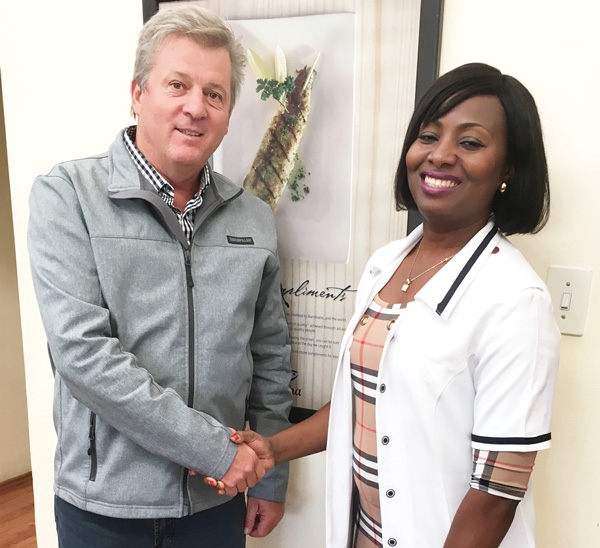
Helping nurses to keep an eye on health care

The first students who successfully completed a Health Care Assistant’s training course in Swakopmund. This training is offered by a health care professional and conforms with international health care standards. Once completing their practical assessments, these students are available as nursing assistants to work in clinics and hospitals.
Young people who want to follow a career in nursing can do a formal degree and become qualified nurses after four years. However, there is little formal training available for individuals who want to become assistants to the professional nurses. This lacuna has now been filled by a course devised by Miller.
These first graduates have completed their assessments in Swakopmund last week after a 4-week course of video instruction to learn the theory, and practical engagement to ensure the understanding and skills are in place. The course is based on the South African and American standards to ensure a good theoretical and skills based curriculum.
Miller said these graduates are now equipped with the knowledge and skills to develop careers where they can work independently in private homes, old age homes, hospitals, frail care centres and rehabilitation homes.
“Due to the demand and requirements from both students and employers, the course is evolving and will be offered in Walvis Bay and Windhoek in the next 2 months” said Miller.
A distance learning course has also been created, using e-learning, with practical training at a place close to the students home. Ongoing assessments will be in the form of assignments on paper, email, skype and phone video and photographs as well as log books signed by registered nurses on the practicals they need to complete. Final assessment however needs to be done under Miller’s guidance and eye to ensure a good graduate.
“This course will provide great career opportunities for a range of Namibians without qualifications and serve the needs of people with ill health or who temporarily need assistance with the activities of daily living” she said.











































